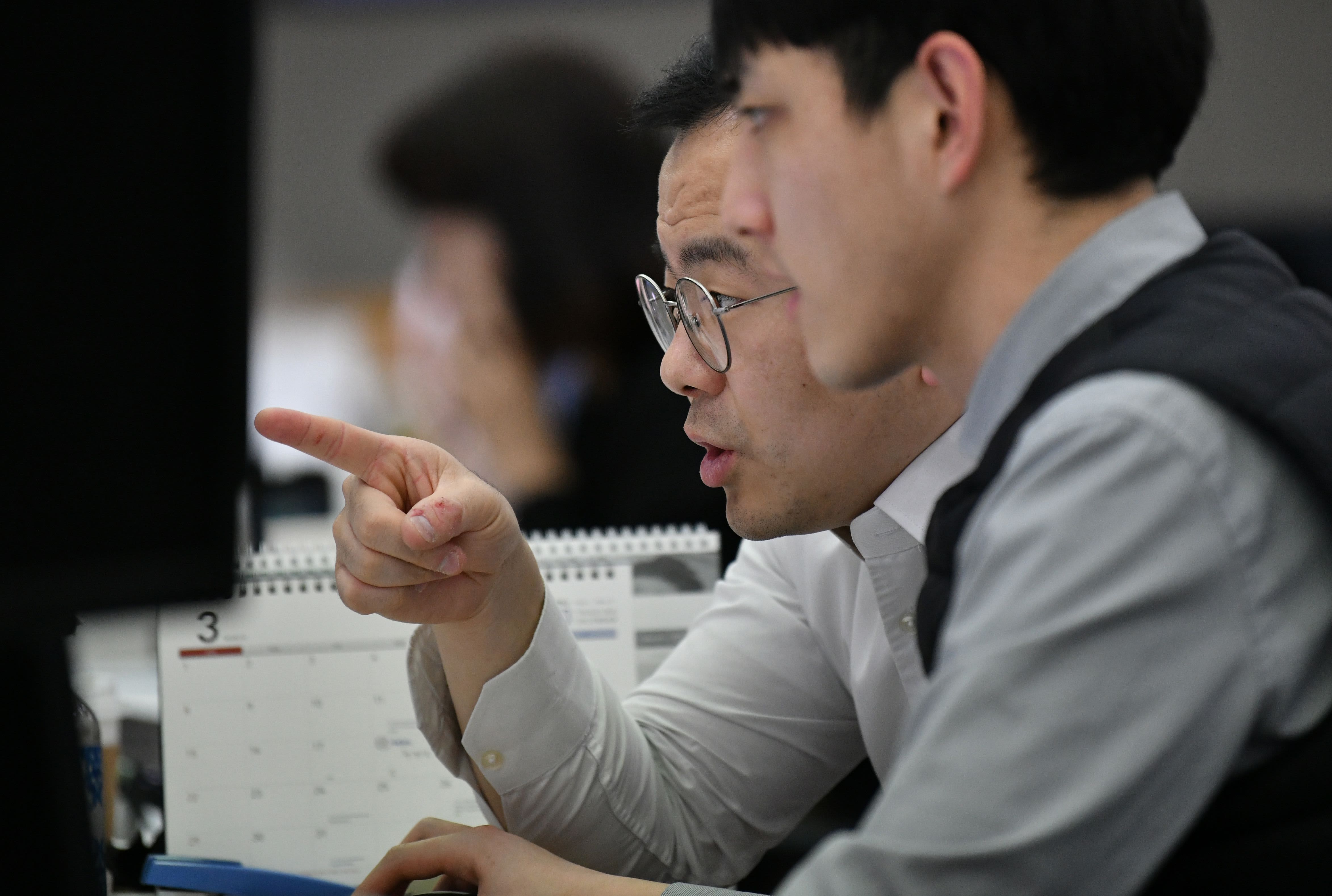
SINGAPORE — Shares in Asia-Pacific were mixed in Thursday trade, as investors watched for market reaction following monetary policy tightening announced in South Korea and Singapore.
South Korea’s Kospi and the Straits Times index in Singapore both struggled for gains as they traded close to flat.
The Bank of Korea announced Thursday a 25 basis points hike in its base rate to 1.5%, a decision predicted by less than half of the economists in a Reuters poll.
Following the decision, the Korean won traded at 1,224.66 per dollar, still stronger than levels above 1,232 seen against the greenback earlier this week.
In Southeast Asia, the Monetary Authority of Singapore on Thursday also announced a tightening of monetary policy, its third in the last six months.
The [Monetary Authority of Singapore] is probably a tad more hawkish than expected, with the market now looking for another potential move in October.
Eugene Leow
senior rates strategist, DBS Bank
The Singapore central bank said it will re-center the mid-point of the exchange rate policy band, referred to as the Singapore dollar nominal effective exchange rate (S$NEER), at its prevailing level. The rate of appreciation of the policy band will also “increase slightly.”
The width of the policy band was left unchanged. The MAS manages monetary policy through setting the exchange rate rather than interest rates.
The Singapore dollar strengthened to 1.354 per dollar following the MAS announcement, as compared with levels above 1.364 seen earlier in the week against the greenback.
“From the rates space, the MAS is probably a tad more hawkish than expected, with the market now looking for another potential move in October,” said Eugene Leow, senior rates strategist at DBS Bank.
Hopes of policy easing in China
Mainland Chinese stocks rose in Thursday morning trade, with the Shanghai composite up 0.59% and the Shenzhen component climbing 0.44%.
China’s government announced Wednesday that reserve requirement ratio cuts will be used “at an appropriate time to raise the credit input capacity of banks,” citing details from a State Council executive meeting chaired by Premier Li Keqiang.
That development comes as China has in recent weeks been battling its most severe Covid outbreak on the mainland since the initial phase of the pandemic in early 2020.
In Hong Kong, the Hang Seng index also gained 0.42%. Shares of CNOOC listed in the city rose 1.57%. Reuters reported Wednesday the Chinese oil firm is preparing to exit operations in multiple Western nations due to fears of sanctions.
Elsewhere, the Nikkei 225 in Japan climbed 1.26% while the Topix index advanced 0.83%.
In Australia, the S&P/ASX 200 rose 0.48%. Australia’s unemployment rate remained at 4% in March, according to official data released Thursday. That was slightly worse than expectations in a Reuters poll for a 3.9% unemployment rate.
MSCI’s broadest index of Asia-Pacific shares outside Japan traded 0.43% higher. Markets in India are closed on Thursday for a holiday.
Currencies and oil
The U.S. dollar index, which tracks the greenback against a basket of its peers, was at 99.684 after a recent decline from above 100.4.
The Japanese yen traded at 125.32 per dollar, stronger than levels above 125.6 seen against the greenback yesterday. The Australian dollar was at $0.7457 following a recent bounce from levels below $0.744.
Oil prices were lower in the morning of Asia trading hours, with international benchmark Brent crude futures down 0.51% to $108.23 per barrel. U.S. crude futures declined 0.75% to $103.47 per barrel.
Source: CNBC
